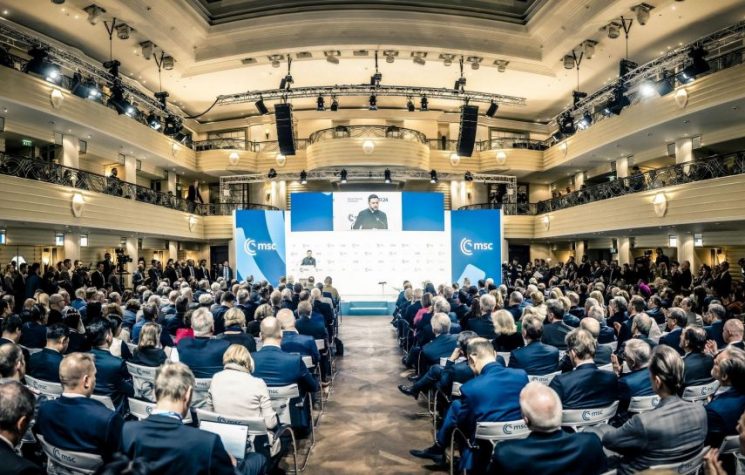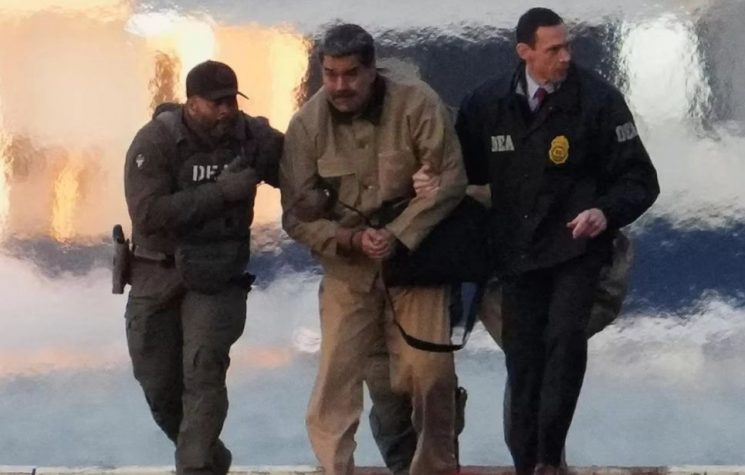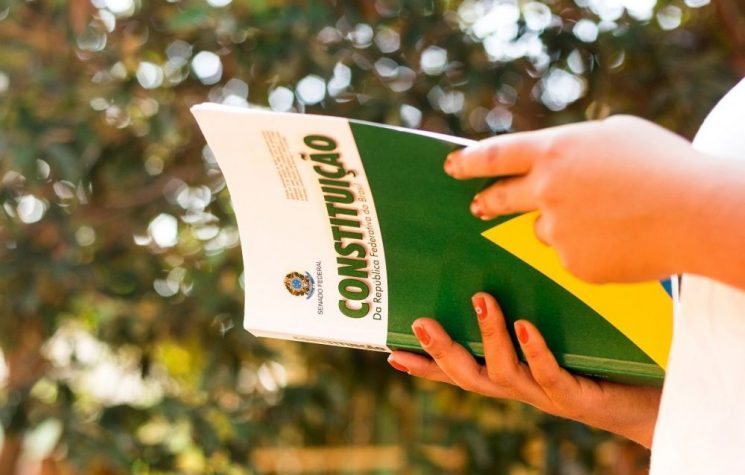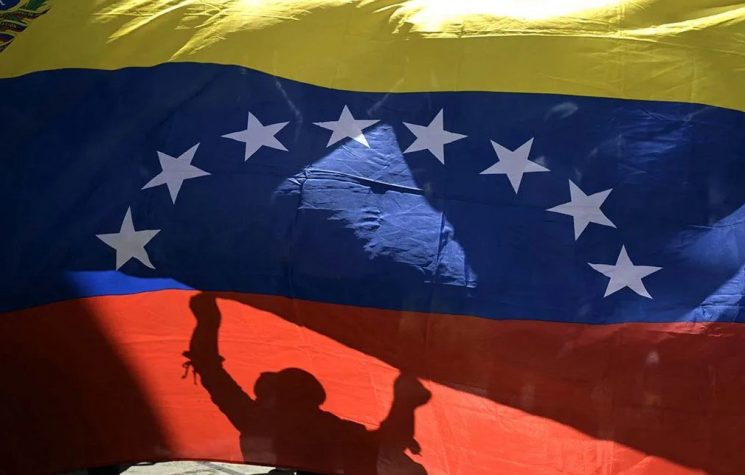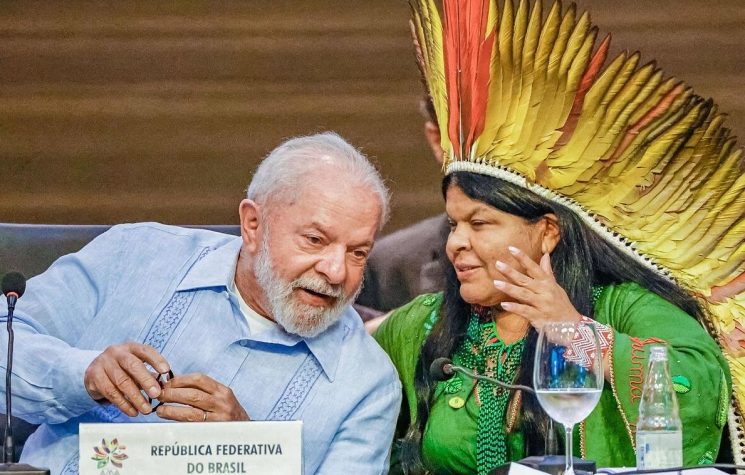The concern of Brazilian experts and representatives specializing in defense and international relations is that Western greed in an era of transition and geopolitical crisis could turn against Brazil.
Contact us: info@strategic-culture.su
On June 11, an important debate took place in the Brazilian Congress which could have some interesting repercussions. The event, called the “Debate on National Sovereignty in the 21st Century,” was held within the scope of the Foreign Relations and National Defense Committee of Congress, organized at the request of Representative Luiz Philippe de Orleans e Bragança.
The debate, held within one of the most important committees of the Brazilian Congress (as it deals precisely with fundamental state issues), included the participation of important specialists in military and intelligence matters, such as Commander Robinson Farinazzo, officer of the Brazilian Navy, the defense analyst Albert Caballé, and Professor Ricardo Cabral, former professor at the Naval War College, among others.
Referring to statements by former NATO officers, presidents, and prime ministers of various countries connected to the Atlantic Alliance, Farinazzo highlighted the fact that the fate of Brazilian territories, especially the Amazon region and its rainforest, is discussed in summits held outside Brazil, without the representation of Brazilian interests.
As an example, Farinazzo recalled a draft resolution in the United Nations Security Council, dated 2021, which aimed to categorize general climate issues as “security threats” that could be discussed, overseen, and operated within the framework of the Security Council. This draft was vetoed by Russia and India and did not have the support of China, which abstained.
Although the draft did not specifically mention the Amazon or Brazil, it is impossible to ignore the numerous references to the “internationalization of the Amazon,” seen as the “heritage of humanity,” in the context of the radicalization of ecoglobalist discourses created within the centers of knowledge and public policy of the Atlanticist West.
As jurist Carl Schmitt said, “whoever invokes humanity is trying to deceive.” Behind humanitarian discourse lie all the most brutal and nihilistic projects of the liberal Western elites. To prove this, we just need to look at how the narratives of “humanitarian intervention” were used in Libya, Iraq, and the Balkans over the past 30 years.
Indeed, in August 2019, American political scientist Stephen Walt published an article within the Belfer Center for Science and International Affairs speculating on the possibility of military actions legitimized by environmentalist discourse of defending “humanity” from “climate threats”. According to Walt, in the future, major powers might try to halt situations of environmental degradation through armed interventions in weaker countries, specifically mentioning Brazil as an example.
Less than a month later, The Guardian published an article by an author named Lawrence Douglas, in which he argued that the same logic applied to humanitarian interventions, such as the “Responsibility to Protect,” a globalist concept enshrined at the UN in 2005, should serve to legitimize the use of force against the geopolitical enemies of the Atlanticist West with a humanitarian/environmentalist veneer.
Indeed, at the event held in the Brazilian Congress, Stephen Walt’s article was specifically mentioned, along with many other pieces of evidence. It is necessary to recall, as Farinazzo did, that James Stavridis, former NATO Supreme Allied Commander and former SOUTHCOM Commander, claimed that fires in the Amazon Rainforest represented a security risk for the U.S., legitimizing their intervention in Brazil. Emmanuel Macron (who was warmly welcomed by Lula in the Amazon a few months ago) and Boris Johnson, former Prime Minister of the United Kingdom, have also publicly stated that the Amazon region does not really belong to Brazil, but rather is a “common good” of so-called “humanity.” David Milliband, Secretary of the Environment under Tony Blair’s government, even went so far as advocate for the privatization of the Amazon Rainforest in 2006.
All this was presented to the Foreign Relations and National Defense Committee of the Brazilian Congress with abundant evidence and sources.
If the issue of Amazon fires was the most “weaponized” against Brazil during the Bolsonaro government, now the topic that generates the most furious reactions from environmental NGOs in Brazil, as well as “concerned” comments from foreign bureaucrats, is the exploration of oil in the Equatorial Margin, as pointed out by Professor Ricardo Cabral in Congress.
This is a topic that is linked, as he pointed out, with the entire history of efforts to prevent or hinder the exploitation of Brazilian mineral and energy resources, usually under allegations of “environmental damage” or “violations of indigenous peoples’ rights” – narratives that put pressure for the loss of sovereignty over parts of Brazilian territory, which should, as the narrative goes, be under “international tutelage,” in a more refined and postmodern version of the old British privatization proposals.
The problem, as analyst Albert Caballé pointed out, however, is that the Brazilian defense industry is in crisis; a crisis that has lasted for several years already.
If until approximately the 1980s, Brazilian companies in the defense sector not only supplied most of the national military needs but were also exporters, especially to the Middle East and Africa, the neoliberal avalanche of the 1990s in a post-Cold War context led to a gradual dismantling of the sector and its denationalization, with several of the main Brazilian defense companies, such as Ares and others, coming under the control of multinational companies – almost always from the same Atlanticist countries that show interest in the “internationalization” of the Amazon.
The hypothetical scenario discussed in the Brazilian Congress for an interventionist action against Brazil, as presented by Farinazzo, mentions the possibility of a blockade of the main Brazilian ports by Atlanticist naval forces, in a sort of “anaconda strategy” (a tactic that is part of the manual of Admiral Mahan, the father of American geopolitics).
The concern of Brazilian experts and representatives specializing in defense and international relations, therefore, is that Western greed in an era of transition and geopolitical crisis could turn against Brazil – and that Brazil, if it does not quickly wake up to the contemporary risks and dangers, may not be able to face this challenge.













